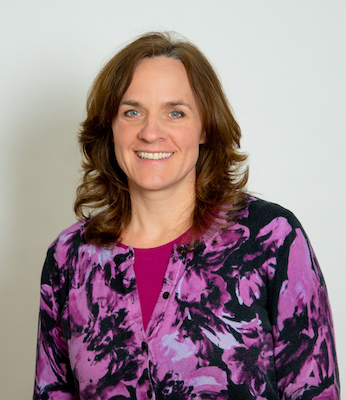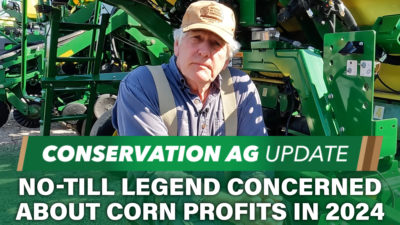Gabe Brown is a familiar name in no-till circles. The Bismarck, N.D., no-tiller is a popular speaker at field days and conferences, has been invited to testify before Congress about agricultural issues and has appeared in Kiss the Ground, a highly acclaimed documentary about how caring for the soil can improve farm and environmental outcomes. In 2012, he was the keynote speaker for our National No-Tillage Conference.
Gabe is a partner in the educational group Understanding Ag and an instructor for Soil Health Academy and has written a book, “Dirt to Soil, One Family’s Journey into Regenerative Agriculture.”
Now Gabe can add a new accolade to his impressive resumé, as he is one of two 2021 recipients of the prestigious Heinz Award for the Environment. This award, established in 1993 by Teresa Heinz in honor of her late husband, U.S. Senator John Heinz, celebrates the extraordinary achievements of individuals who are making a difference in areas Heinz had been passionate about during his lifetime.
As part of the accolade, Gabe will receive an unrestricted cash award of $250,000.
Common Ground for Common Good
According to the Heinz Family Foundation, Gabe was selected because he is “a leader in regenerative agriculture and soil health who is catalyzing the movement to change farming practices. The results he achieves at his highly productive 5,000-acre farm, Brown’s Ranch, together with his first-hand farming experience and passion for sharing his journey are inspiring farmers to shift from conventional to regenerative methods, transforming farmland from an environmental problem to a solution.”
I had the chance to speak with Gabe shortly before the announcement about the award went public.
“It’s very humbling and flattering, but I don’t look at this award as an individual achievement as much as I see it as a validation that those of us who are using regenerative practices on our farms and ranches can have a major impact,” Gabe says.
“My partners and I at Understand Ag like to use the phrase ‘Common Ground for Common Good,’” he continues. “We believe in the good in people and that most people agree on 80% of the issues. So let’s come together as a society to focus on that common ground for the common good. And we believe that agriculture can play a significant role in healing so many of the issues we’re seeing in society today.”
Some of the issues Gabe says the agriculture industry can make an impact on include:
• Clean water: “Wherever you look, there are problems with nitrates and phosphates in the watershed,” Gabe says. “Is ag to blame? Yes, but it can also be part of the solution.”
• Clean air: Regenerative ag practices can help reduce the amount of CO2 in the atmosphere by sequestering more carbon in the soil. This can increase soil organ matter, leading to better water infiltration and better resilience.
• Decimated rural communities: “When you drive through rural America, you see the decimation of the small towns. That’s a direct result of low profitability,” Gabe says. He says that in Kansas in 2019, 72% of net farm income came from government subsidies. Regenerative farms, on the other hand, were shown to be 78% more profitable, he says, citing research by South Dakota entomologist Jonathan Lundgren of the Ecdysis Foundation.
“Agriculture can revitalize these rural communities because we all know that farmers are going to spend the majority of their money locally,” Gabe says.
• Human health crisis: The documented decline in nutrient density of food can be addressed at its very source, says Gabe. “As we use regenerative practices, we’re increasing the phytonutrient compounds in our food, which is directly related to the health of the gut microbiome, which is directly related to human health.”
Ag Done Right
These may seem to be lofty goals, but Gabe is steadfast.
“Those of us who practice regenerative ag believe we are a major part of the solution. Yes, ag has contributed to climate issues, through tillage and overuse of fertilizers, especially nitrogen. We’ve accelerated the amount of carbon from our soils into the atmosphere. But at the same time, we’re showing that we can take massive amounts of carbon out of the atmosphere and put it back into the cycle, into the soil. Nothing else can do that besides agriculture done right.
“If we diversify our crop rotations, if we plant cover crops, if we integrate livestock, we’re going to be best poised to mitigate all these challenges. And so with this award, I’m flattered and honored, but it’s all about bringing the good that agriculture can do to the forefront.”
Notably, Gabe is only the second farmer to ever receive the Heinz Award since the program’s inception. In 2009, when 10 Special Focus prizes were awarded, all in the Environment category, Joel Salatin of Polyface Farm in Virginia was one of the recipients. The recognition of Gabe now in 2021 is an encouraging sign that the underlying message of regenerative ag — that there is hope for the future and that ag is at the heart of it — is being heard far and wide.
Congratulations, Gabe!






